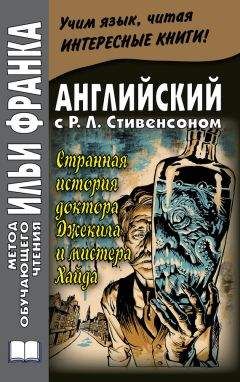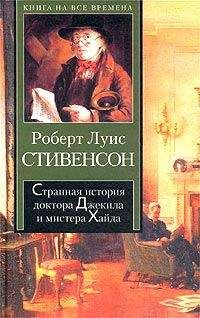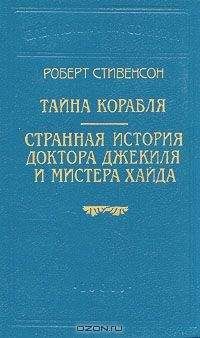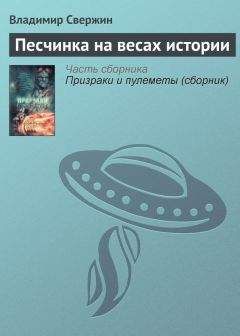Robert Stevenson - Английский язык с Р. Л. Стивенсоном. Странная история доктора Джекила и мистера Хайда
And with the same grave countenance he hurried through his breakfast (все с тем же мрачным выражением /лица/ он наскоро позавтракал: «поспешил через завтрак»; grave — серьезный; мрачный, печальный) and drove to the police station, whither the body had been carried (и поехал в полицейский участок, куда было перенесено тело). As soon as he came into the cell, he nodded (как только он вошел в камеру, он кивнул).
"Yes," said he, "I recognise him (я узнаю его). I am sorry to say that this is Sir Danvers Carew (к сожалению = долженсприскорбиемсообщитьвам, это сэр Дэнверс Кэрью)."
circumstance ['sq:kqmstxns, 'sq:kqmstqns] solemn ['sOlqm] countenance ['kauntInqns]
This was brought to the lawyer the next morning, before he was out of bed; and he had no sooner seen it, and been told the circumstances, than he shot out a solemn lip. "I shall say nothing till I have seen the body," said he; "this may be very serious. Have the kindness to wait while I dress."
And with the same grave countenance he hurried through his breakfast and drove to the police station, whither the body had been carried. As soon as he came into the cell, he nodded.
"Yes," said he, "I recognise him. I am sorry to say that this is Sir Danvers Carew."
"Good God, sir (милостивый Боже, сэр)," exclaimed the officer (воскликнул полицейский; officer — чиновник; полицейский), "is it possible (неужели: «возможно ли это»)?" And the next moment his eye lighted up with professional ambition (и в следующее же мгновение в его глазах вспыхнуло профессиональное честолюбие). "This will make a deal of noise (это наделает много шума)," he said. "And perhaps you can help us to the man (и возможно, вы можете помочь нам с убийцей = может быть, вам известен убийца)." And he briefly narrated what the maid had seen (и он кратко рассказал то, что видела служанка), and showed the broken stick (и показал ему сломанную трость = обломок трости).
Mr. Utterson had already quailed at the name of Hyde (/услышав/ имя Хайда, мистер Аттерсон упал духом; toquail— трусить, пасовать; падать духом); but when the stick was laid before him, he could doubt no longer (когда же перед ним положили трость, он уже больше не сомневался): broken and battered as it was, he recognised it (хотя она и была сломана и расщеплена, он узнал ее; tobatter— колотить; разбивать) for one that he had himself presented many years before to Henry Jekyll (это была та самая трость, которую он сам подарил Генри Джекилу много лет тому назад).
exclaim [Ik'skleIm] quail [kweIl] battered ['bxtqd]
"Good God, sir," exclaimed the officer, "is it possible?" And the next moment his eye lighted up with professional ambition. "This will make a deal of noise," he said. "And perhaps you can help us to the man." And he briefly narrated what the maid had seen, and showed the broken stick.
Mr. Utterson had already quailed at the name of Hyde; but when the stick was laid before him, he could doubt no longer: broken and battered as it was, he recognised it for one that he had himself presented many years before to Henry Jekyll.
"Is this Mr. Hyde a person of small stature (а этот мистер Хайд невысокого роста; stature — телосложение; рост)?" he inquired (спросил он).
"Particularly small and particularly wicked-looking (очень невысокого роста и очень злобный), is what the maid call him (вот что сказала о нем служанка; to call — кричать; называть; считать)," said the officer (сказал полицейский).
Mr. Utterson reflected; and then, raising his head (мистер Аттерсон раздумывал, затем, поднимая голову, /сказал/), "If you will come with me in my cab (если вы поедете со мной в моем экипаже)," he said, "I think I can take you to his house (думаю, что смогу отвезти вас к его дому)."
stature ['stxtSq] particularly [pq'tIkjulqlI] wicked ['wIkId]
"Is this Mr. Hyde a person of small stature?" he inquired.
"Particularly small and particularly wicked-looking, is what the maid call him," said the officer.
Mr. Utterson reflected; and then, raising his head, "If you will come with me in my cab," he said, "I think I can take you to his house."
It was by this time about nine in the morning (было уже: «к этому времени было» около девяти часов утра), and the first fog of the season (и /город окутал/ первый осенний туман; season — времягода). A great chocolate-coloured pall lowered over heaven (густой, шоколадного цвета, покров опустился на небо; pall — покров/нагробе, могиле/; завеса, пелена), but the wind was continually charging and routing these embattled vapours (но ветер постоянно нападал на эти выстроенные туманы/пары и разбивал/рассеивал их; to charge — нападать; to embattle — строитьвбоевойпорядок; сооружатьзубцыибойницы/настенахбашенит. п./; to rout — разбивать наголову; обращать в беспорядочное бегство; разгонять; рассеивать); so that as the cab crawled from street to street (поэтому, пока экипаж тащился от улице к улице = по улицам; to crawl — ползти; медленнодвигаться), Mr. Utterson beheld a marvellous number of degrees and hues of twilight (мистер Аттерсон смог созерцать удивительное количество степеней и оттенков сумерек); for here it would be dark like the back-end of evening (поскольку то становилось темно, как ночью: «как в конце вечера»); and there would be a glow of a rich, lurid brown (а то /возникало/ некое зарево яркого, огненно-коричневого цвета), like the light of some strange conflagration (словно отблеск некоего странного большого пожара; glow — сильныйжар; отблеск, зарево/отдаленногопожара, заката/; rich — богатый; густой, яркий/оцвете/); and here, for a moment, the fog would be quite broken up (а то на мгновение густой туман рассеивался; to break — ломать; to break up — распадаться, разваливаться), and a haggard shaft of daylight would glance in between the swirling wreaths (и изможденные вспышки дневного света проглядывали сквозь кружащиеся кольца тумана; shaft — древко/копьяит. п./; луч/света/, вспышка, блеск).
chocolate ['tSOklIt] embattled [Im'bxtld] vapour ['veIpq] marvellous ['mQ:v(q)lqs] twilight ['twaIlaIt] conflagration ["kOnflq'greIS(q)n] wreath [ri:T]
It was by this time about nine in the morning, and the first fog of the season. A great chocolate-coloured pall lowered over heaven, but the wind was continually charging and routing these embattled vapours; so that as the cab crawled from street to street, Mr. Utterson beheld a marvellous number of degrees and hues of twilight; for here it would be dark like the back-end of evening; and there would be a glow of a rich, lurid brown, like the light of some strange conflagration; and here, for a moment, the fog would be quite broken up, and a haggard shaft of daylight would glance in between the swirling wreaths.
The dismal quarter of Soho seen under these changing glimpses (этот угрюмый район Сохо в этом переменчивом освещении; quarter — четверть; квартал; to change — менять/ся/, изменять/ся/; glimpse — проблеск, слабыйсвет, слабаявспышка; мелькание), with its muddy ways (с его грязными дорогами; mud — грязь, слякоть), and slatternly passengers (неряшливыми прохожими), and its lamps, which had never been extinguished or had been kindled afresh (и его фонарями, которые то ли не были погашены, или уже были зажжены заново) to combat this mournful reinvasion of darkness (чтобы сражаться с повторным мрачным вторжением тьмы; invasion — вторжение), seemed, in the lawyer's eyes, like a district of some city in a nightmare (казался взору нотариуса районом какого-то города из кошмара). The thoughts of his mind, besides, were of the gloomiest dye (его собственные мысли, к тому же, были самого что ни на есть мрачного цвета; dye — окраска; цвет/какрезультатокрашивания/); and when he glanced at the companion of his drive (и когда он взглянул на своего попутчика; drive — езда), he was conscious of some touch of that terror of the law and the law's officers (он осознал = почувствовал некий приступ страха перед законом и стражами порядка; touch — прикосновение; чуточка, примесь), which may at times assail the most honest (который временами одолевает даже самых честных людей; to assail — наступать, атаковать; одолевать, мучить).
glimpse [glImps] slatternly ['slxtqnlI] extinguish [Ik'stINgwIS] nightmare ['naItmeq] dye [daI]
The dismal quarter of Soho seen under these changing glimpses, with its muddy ways, and slatternly passengers, and its lamps, which had never been extinguished or had been kindled afresh to combat this mournful reinvasion of darkness, seemed, in the lawyer's eyes, like a district of some city in a nightmare. The thoughts of his mind, besides, were of the gloomiest dye; and when he glanced at the companion of his drive, he was conscious of some touch of that terror of the law and the law's officers, which may at times assail the most honest.




